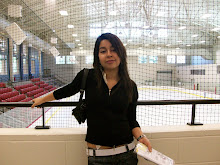
Friday, December 5, 2008
The easier way to travel...Digital Tour!!
The language of the students who will use this video podcast is Spanish, they are in the average of 18 years old, and they attend to an English course in Santiago, as my goal is to help students that are interested in learning English and improve it each day, this video podcast was made for people that need to have a intermediate level of English; and the aim of it, is for people to reinforce their skills (reading-writing-listening-speaking).
- Language Objectives (podcast):
- The student must write about a trip that she/he did, or if they haven't done any, they can write something about a trip that they would love to do. (we need to know the background of the student first in order to choose what kind of assignment is appropriate for them).
- At the beginning of the video there are some pictures of Seattle. They have to talk with their partner, (if it is in the classroom) and explain her/him what are the differences between Seattle and the city that they are living in.
- Listening comprehension: The student has to extract some information about the Space Needle, that was given from the tourist guide and Nina. After that they will answer some questions: -How many inhabitants does Seattle have?; - How tall is the Space Needle?; - What is the name of the tourist guide in the elevator?; - What is the name of the oldest residential district?
- Language Objectives (series):
- The students will do different kind of exercises related to reinforced the four skills.
- Content Objectives (podcast):
- The student will know how to give information about what they hear and understand.
- Content Objectives (series):
- The students will know more about other cultures, and also learn vocabulary related with what is shown in the video, moreover some facts that each different city has.
In the podcast you can find some explanation and definition of things that may the student don not know, in the same way the video starts with pictures and calm modern music, and after that starts the speaking part, so in that way the student can engage immediately with what is shown in the video.
Finally in this video podcast you can see the use of the four skills in the activity, listening, reading (the information that appears in the video), writing and speaking. The use of realia in the video, when Nina is in the cab, and also you can see the use of teaching through content; with the vocabulary.
Monday, December 1, 2008
If only he knew....

Some sites where they can learn more about language acquisition:
First what is Language acquisition...
http://users.ecs.soton.ac.uk/harnad/Papers/Py104/pinker.langacq.html
Then a little bit of Krashen...
http://www.sk.com.br/sk-krash.html
and finally a whole menu of second language acquisition...
http://homepage.ntlworld.com/vivian.c/SLA/index.htm

(sorry for the delay, I thought it was already published)
Wednesday, November 26, 2008
A topic in language education that I want to know more about
Since my experience in Lewis and Clark high school, I realized that student must know how to write properly in order to be understood, and also to reach more in life that just a lower job. I would like to know how can I fill in the gap that students may have in some way during the process of language acquisition, I think that is not good to leave that space empty because then the kids are going to have that emptiness for the rest of their lives.
I found some interesting places on Internet to teach writing in different ways, but i could not find places about the topic itself.
Some factors to consider: an action list.
http://www.webofenglish.co.uk/ltmat.htm
Teaching Index
Approaches & Methods in Second Language Teaching
Sunday, November 23, 2008
Podcasting my way to mastery of English
http://www.podcastsinenglish.com/pages/level1.shtml

Wednesday, November 19, 2008
Response to a question about English teaching
Re: Cross Cultural Awareness
by Cristina Ramos on Nov 20 2008 2:14 AM
You can do some activities with your students in order to them understand each other culture, as an example of that, you can put them in groups (depends on how many students do you have) and try not to put more than 2 students from the same country together, if you classroom has computers ask to the student to log in and look for tipical things of their country in pictures and ask them to show them and explaine it in front of their classmates, I think that images and the fact that kids really love technology, is going to make the class more interactive and meaningful for them, then the student can share some of their native language, explained it what is the name of those especifics things that he/she showed to the rest of the class. If you classroom doesn't have tech, you can do something similar with a map and some draws. Would be a good idea if you introduce the activity to the students by saying that each of their culture (where they are from) is important, it's what they are or something like that :).
I hope this can help you good luck.
Monday, November 17, 2008
Websites that might help
This morning I saw a student having problems doing his assignments , with writing and not only him but the others two Russian students, they don't really know how to write, they mixed their language with English and the writing is something hard to understand; I realized too that the teacher didn't care too much about it because I told him: "hey Mr. X, what about this kid, he is not doing anything..." and the only response that I received was a gesture with his face, like trying to say: "hm I don't care", then after that I pulled together everything, last Friday with the visit of some man looking for jobs for the students in the classroom because they already have enough age to work; and I know that it is OK in someway because they don't have enough money in their families but on the other hand that means that the teacher doesn't have high expectations of their future. After a while the teacher said that to me (I mean the gesture), I felt like I didn't know what to do I felt useless for them, because we had to help them with their writing, but in what I could help if they don't write anything just because they don't feel like they can do it. I took some minutes to thing about it and then I tried to start helping a Russian student with his writing, when I went to his desktop he immediately stopped what he was doing, and I started to speak to them about the first line, and we talked a lot so I told him you have a really good English!!...and he was kind of surprised about it, but it was true he really speaks very well, the problem is when he tries to put the ideas on paper then it is a mess and that because he have the problem of their first language as a interference he writes with the Russian alphabet some words, and he didn't know how to speaks well his own language either, so I told him if he is really interested in doing well, you have to put some of effort on this and do extra assignments for yourself, at the beginning he seemed like interested because I explained to him that he is not stupid (because his little brother bothers him because the little one knows how to speak English Russian write and everything very good), he just came to America not in a good age for learning another language, and even more because in his country he just started writing when he came here; and the other student who was complete ignore by the teacher didn't do anything and the only thing that he received was discipline from the teacher, nothing else, and it is even more sad because he is going to change school next week.
For an activity I really tried hard to look for something for them (the Russian students) but I could find anything good enough for them, but I found interesting thing about how to teach to struggling writers.
Interesting article:
http://www.questia.com/googleScholar.qst;jsessionid=JvnbhQ2mM5gZ3WjwlmmJK0M8pv5mKdz0s1PLCQdF4krwYB0LndTk!-488057137?docId=5000635371
http://www.jimwrightonline.com/php/interventionista/interventionista_intv_list.php?prob_type=writing
And some podcast:
http://podcasting-in-education.wikispaces.com/Examples+of+Educational+Podcasts
http://www.slideshare.net/pafarrells/reaching-struggling-writers-through-podcasts-presentation
I really think now that for me is more meaningful to teach English to students that really need it , like here, where you know than they can't survive without a good level of English, they are just been taught for having any job that a person can offer them, and that they can do it, not something more, not university nor something higher, and those kind of jobs are the ones that American people are not willing to do. On the other hand to teach to students that don't really need a second language, like in my country because we are surrounded by countries who Speaks only Spanish, they don't have the necessity as the students from here.







